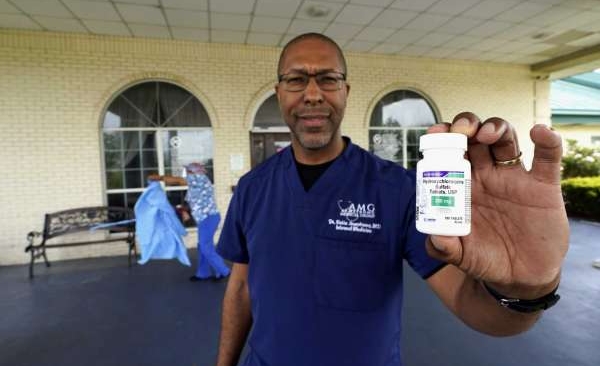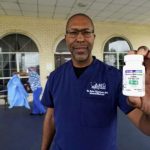39 elderly coronavirus patients in Texas nursing home successfully complete hydroxychloroquine treatment for COVID-19 with no side effects, Dr. Robin Armstrong says

We’ve been writing about hydroxychloroquine for at least one month now. During that period, we’ve also received countless emails from our readers thanking us for sharing the news about the malaria drug. At the same time, we also received threatening messages from people asking us to stop promoting “unproven drug.” Some even went as far as asking if we have any investment in hdyroxychloroquine companies. Just to set the record straight, we have zero investment in any pharmaceutical company, not even hdyroxychloroquine company.
Hydroxychloroquine has become a controversial drug since President Donald Trump touted the drug on social media with some doctors saying the drug did not work for their patients. Doctors are divided over the effectiveness and safety of the drug. For example, yesterday, USA Today ran a story titled, “Study of Trump-touted chloroquine for coronavirus stopped due to heart problems, deaths.” According to the report, a double-blind research study of hydroxychloroquine found it to be so dangerous at high doses the trial was shut down after six days. One of the doctors mentioned in the article, Dr. Bettina Fries, infection diseases division chief at Stony Brook Medicine said, “Now we give hydroxychloroquine to most (COVID-19) patients but discourage it in elderly patients that have significant cardiac disease. We also monitor patients constantly.”
However, some doctors have also seen positive results with hydroxychloroquine. On a Tuesday, a local ABC News TV station ran a story about Dr. Robin Armstrong, MD, a medical director at The Resort at Texas City, who successfully complete hydroxychloroquine treatment for COVID-19 for 39 elderly living in Texas nursing home. According to the report, Dr. Armstrong decided to try hydroxychloroquine because of the risk losing 15 percent of his elderly coronavirus patients. “I thought the risk of seeing 15% of that nursing home die was just not an acceptable,” Dr. Armstrong said.
According to the report, 56 residents at this senior facility in Galveston County contracted the novel coronavirus. Dr. Armstrong said only 39 of them gave him permission to treat them with hydroxychloroquine pills.
“Most of the patients have done well. And, you know, and I think that that is suggestive that the medication is helpful,” Armstrong told WFAA.
When Dr. Armstrong told the local TV station that “most of the patients,” he went on to say, “Well, I would say I would say all the patients have done well,” Armstrong added. As of Sunday, those 39 patients finished five days of treatment with hydroxychloroquine. Dr. Armstrong said no one experienced any side effects.
“We’ve got one patient now that kind of goes back and forth,” said Dr. Armstrong, “He’s an older gentleman, but we’re kind of nursing him through the process, but he’s getting better.” Dr. Armstrong also added that only two patients receiving hydroxychloroquine had to go to hospital for unrelated conditions. He also disclosed that a woman had a fall and a man got dehydrated in his room because he was not eating and drinking.
As for the USA Today article we mentioned at the top of the story, buried in the article was a statement by Rajesh Gandhi, an infectious diseases physician at Massachusetts General Hospital and professor at Harvard Medical School, who was on the IDSA guidelines panel that created the guidelines published over the weekend. Dr. Gandhi said, “The IDSA guidelines panel concluded that the data so far for hydroxychloroquine and chloroquine is insufficient to be either for or against it.” He added, “We don’t know that it doesn’t work or that it works.”
Below is the video.




